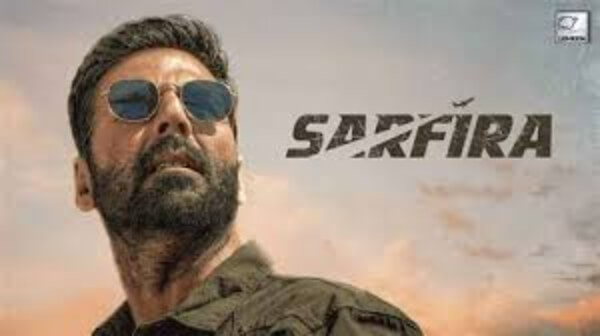Sahir Ludhianvi’s divorced mother remained a great influence on him. Some even say he suffered an Oedipus complex. An interesting and intriguing, passionate and sensitive aspect of his has been his love affair with Amrita Pritam. Unsuccessful in love, he penned soulful love poems. Samina profiles him, in the weekly column, exclusively in Different Truths.
Sahir Ludhianvi’s poetry can teleport you to a world of love, dreams, and aspirations. We grew up believing him to the most romantic and sensitive poet, lyricist. He had the gift of a genius and perhaps the curse of one as well. His poetry drew people to him and his ego ruined every working relationship sooner or later. Whether it was because he insisted on getting a rupee more than Lata to establish equality with her or his ascribing the success of his songs to his skill alone that broke the best professional partnership he had with SD Burman. That he was a genius is without question. At the age of 22, he had written his collection of Urdu poetry Talkhiyan (Bitterness), a book that is perhaps second only to Ghalib’s in terms of popularity.
Abdul Hayee wrote under the pen name Sahir Ludhianvi. He was born in a wealthy family of zamindars in Ludhiana on 8th March 1921, but very soon had to leave home with his mother Sardar Begum, who divorced her husband when he got another wife, forfeiting all claims. His mother remained a great influence on him and he always felt greatly attached to her. Some even say he suffered an Oedipus complex. An interesting and intriguing, passionate and sensitive aspect of Sahir has been his association with Amrita Pritam.
Bujha diye hein Khud apne
Haathon mohabbat ke diye Jala ke,
Meri Wafa ne ujaar di hein
Ummeed ki bastiyan Basa ke
In 1944, Sahir, a poet, and budding lyricist first met Amrita Pritam at a mushaira (poetry reading) in the village of Preet Nagar, between Lahore and Delhi. He was all intensity and idealism. She was striking, both for her beauty and her gift with words. It began like a worn-out cliché: their eyes met across a dimly lit room. However, the love story that followed was anything but Pritam was married to Pritam Singh, to whom she had been betrothed when she was a child. Ludhianvi’s failure to commit to long-lasting relationships with women was the unfortunate fallout of the poet’s obsession with his mother. He was in Lahore, she was in Delhi; between them, they built a bridge of words, confidences, and endearments. In her letters, it’s obvious that Pritam fell headlong in love with Sahir. She called him “Mera shayar”, “Mera mehboob”, “Mera khuda” and “Mere devta”. Though later he was also involved with singer and actress, Sudha Mehrotra.
Chalo ek Baar phir se…
Ajnabi ban Jayen hum dono
In 1949, he left Lahore and came to Delhi because he met his Sikh and Hindu friends who had fled from Pakistan. He soon moved to Mumbai where Gulzar was his neighbour. The time was also ripe for Bollywood to accept several poets-turned-lyricist – many with strong roots in the Progressive Writers Movement. One can think of Majrooh Sultanpuri, Shakeel Badayuni, Rajinder Krishan, Shailendra, Kaifi Azmi, Hasrat Jaipuri who all contributed to the golden era of film music in Hindi cinema. The lyricists of 1930s and 1940s, like Kedar Sharma, DN Madhok, and Kavi Pradeep had written Sanskritised Hindi with strong nationalist undercurrents. Sahir and his peers made lyrics as a way of moving the story forward and not just a summary of the preceding scene.
Sahir made his debut as a lyricist with the film, Azaadi ki Raah Par, but what gave him utmost popularity was his lyrics in Baazi, with music by S D Burman. He was an integral part of Guru Dutt’s team and later with Roshan too he gave the unforgettable lyrics in the film Taj Mahal for which he won the Filmfare Award. The Sahir-SD Burman combination took off with Baazi (1951) a film that marked the directorial debut of Guru Dutt. The songTadbeer se bigdi hui takdeer bana le from Baazi became such a hit, according to Dev Anand, that at the Air Force Station in Jodhpur, people would come in just to listen to the song. Listen to the way he urges the protagonist to use tadbeer (deliberation) to takdeer (fate) back on track. What a way to say nothing ventured nothing gained.
The pinnacle of success of the team was seen in Pyaasa, where it becomes to choose which a better song is unfortunately when Sahir propagated the success of the film to its lyrics, SD Burman did not take it too well and the team parted ways.
https://www.youtube.com/watch?v=3ta4BmumQKc
While 1957 saw the end of Sahir’s partnership with SD Burman, it saw the beginning of his partnership with OP Nayyar in Naya Daur and Tumsa Nahi Dekha. Naya Daur had Dilip Kumar and Vyjayanthimala in the lead and set the stage for what came to be known as Tonga songs like Yun to hamnein laakh haseen dekhe hain that remains the trademark of OP Nayyar’s music.
It is not possible to talk about Sahir’s body of work without writing about Hum Dono (1961). Set to music by Jaidev, who was once an assistant of SD Burman, this film had a prayer Allah Tero Naam and several Rafi classicsKabhi Khud Pe Kabhi Haalaat Pe or Main Zindagi ka Saath Nibhata Chala Gaya. Chitralekha and Woh Subah Kabhi toh Ayegi too have memorable lyrics by Sahir.
Kabhi Kabhi too got him his second Filmfare Award and he was a great favourite of Yash Chopra who has made the most romantic films of all times. He was honoured with a Padma Shri by the Government of India, in 1971. He died a bachelor in 1980 but his songs live in our hearts even today.
Kaun rota hai kisi aur ki Khatir,
Aye dost,
Sabko Apni hi kisi baat pe rona Aaya.
©Samina Naqvi
Photos from the Internet.
#Cinemascope #SahirLudhianvi #Poet #Lyricist #IndianMusic #Bollywood #HindiMusic #DifferentTruths




 By
By


 By
By